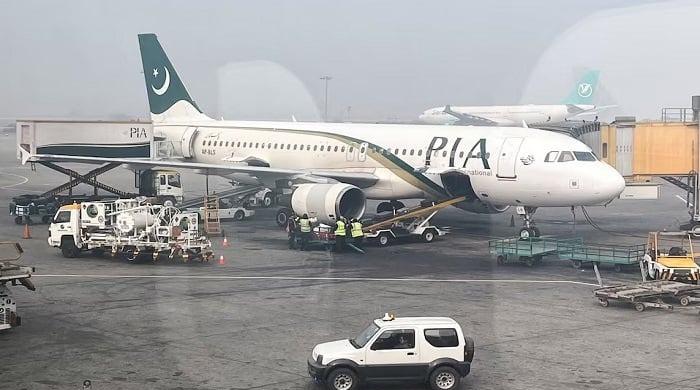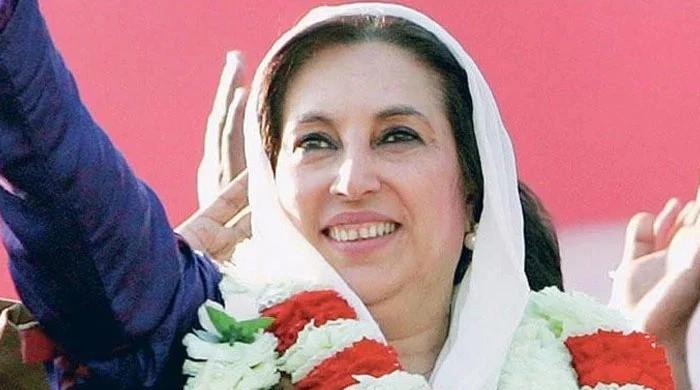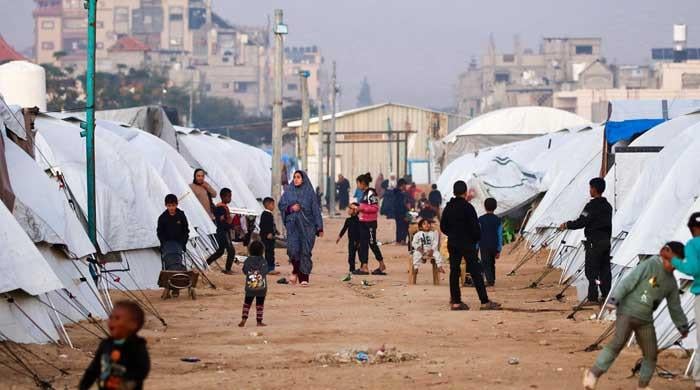Pakistan's digital dilemma
Adding to the woes are the recent internet outages that have plagued Pakistan’s economy
September 16, 2024

In today’s world, the line between our online and offline lives has blurred to the point of non-existence. Whether it’s how we earn, spend, learn, or entertain ourselves, everything has moved online. The internet has become the backbone of modern living, influencing our decisions, shaping industries, and driving economies.
Nowhere is this more evident than in Pakistan, where more than 60% of the population is under 30. This young, tech-savvy demographic is not just adopting the digital way of life; they are driving it.
We are practically living online. Every aspect of our lives, from earning and spending to learning and commuting, is intertwined with the internet. For a country like Pakistan, with a young population driving digital adoption, the internet is not just a convenience but a necessity.
However, as our dependence grows, so does the need for reliable and fast internet. It is sad to see that the country whose software sector is valued at $3.2 billion, serves over 170 countries in IT-enabled services (ITeS), and ranks fourth in global freelance markets, suffering because the state thinks social media is a national security issue. The recent disruptions have shown that while we may be living online, our digital future depends not on the stability, IT infrastructure and speed of our internet connections, but government decisions.
Irresponsible government decisions and policies can wreak havoc on Pakistan’s business environment, investment climate, and overall economy. Political instability naturally breeds economic instability; they are inextricably linked. When government policies are inconsistent or unfriendly towards businesses, it creates an environment of uncertainty that can scare off investors. This fear isn’t unfounded — when the safety of assets and personnel becomes questionable, businesses start looking for more stable places to park their money, leading to capital flight. The result? An economy that struggles to grow, with opportunities drying up and businesses pulling back.
Take, for instance, the impact of rising electricity costs in Pakistan. Between July 2022 and July 2024, the basic tariff per unit of electricity has surged multiple times. From July to October 2022, it increased by Rs7.91, followed by an additional hike of Rs7.50 in July 2023. A fixed surcharge of Rs3.23 per unit was also implemented in July 2023, with another basic tariff increase of Rs7.12 in July 2024.
Of course, this places a heavy burden on businesses, especially those in energy-intensive sectors. It is nearly impossible for companies to stay profitable, stifling their ability to expand, innovate, and compete. This isn’t just a minor inconvenience but a significant roadblock that deters investment, stymies growth, and could potentially cripple entire industries.
Adding to the woes are the recent internet outages that have plagued Pakistan’s economy. Gone are the days of traditional 9-to-5 jobs; the internet has revolutionised everything, especially for the youth. Freelancing platforms have opened doors for digital entrepreneurship, allowing people to monetise their skills from home.
Gaming, too, has become a lucrative profession offering attractive earnings. Spending habits have also shifted online. With just a few taps, groceries are delivered to your door, making traditional grocery runs feel outdated. Fintech has transformed money management, making online banking and digital wallets essential tools, especially in Pakistan’s rural areas.
In a world where digital connectivity is crucial, where we are touching upon conversations such as gender gap in AI, and gender disparity in technology adoption, we have now gone back to whether we can access the internet at all, or whether the influencer can make a hilarious politically-driven content, or the app will be banned across the board.
Businesses, whether physical or digital, thrive on predictability, and when that is taken away, their ability to operate effectively is severely hampered. And the government needs to understand that these are just not entertainment centres.
Pakistan has an entire influencer economy. It is a thriving business in itself and people’s incomes depend on it. They shape public opinions; they regulate people’s emotions; they influence political thought and critical thinking. The government seems unsettled by it. And these disruptions have been catastrophic for these businesses, particularly those that rely on e-commerce and digital platforms. The connectivity disruptions have caused chaos — freelancers miss deadlines, businesses face delays, and everyday tasks become frustrating, whether it’s commuting or grocery shopping.
On a macro level, the outages have led to the closure of businesses – 3,968 Pakistani companies registered with the Dubai Chamber of Commerce in the first half of 2024 to escape the instability. This exodus of businesses is more than just a loss of corporate presence — it is a loss of jobs, economic activity, and investor confidence.
Maintaining a stable, supportive environment for businesses isn’t just good policy — it is essential for sustainable economic growth. Without it, we risk missing out on the long-term benefits of a robust and dynamic economy, while continuing to lose businesses, and economic potential to more stable regions.
The writer is an independent journalist from Karachi.
Disclaimer: The viewpoints expressed in this piece are the writer's own and don't necessarily reflect Geo.tv's editorial policy.
Originally published in The News









